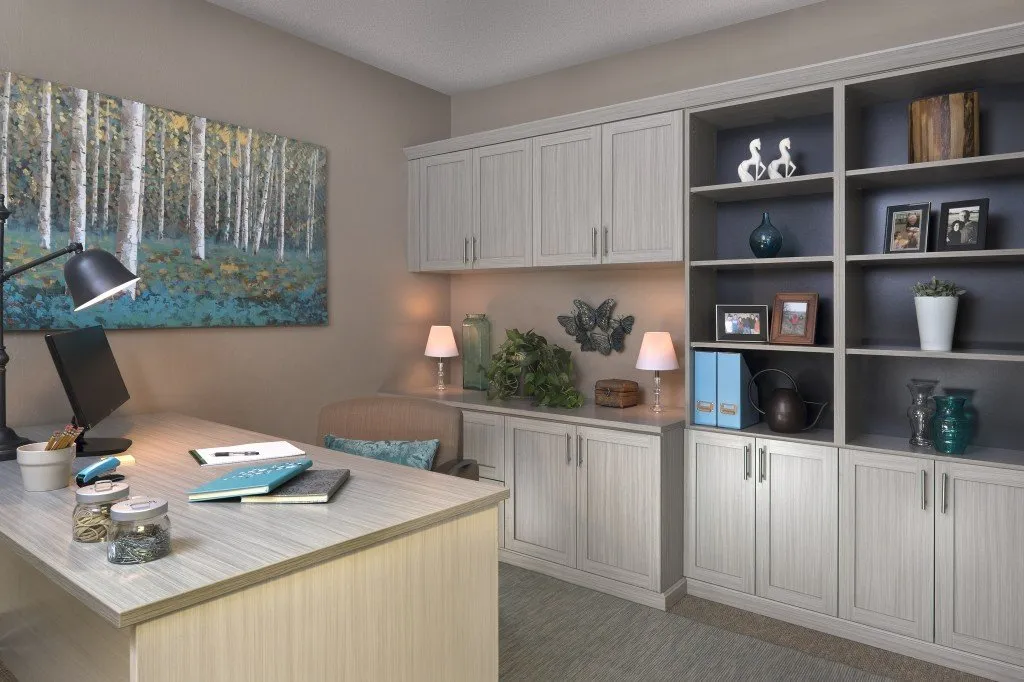
Have you ever walked into a clean, organized room and instantly felt calmer? There’s a reason “a cluttered space equals a cluttered mind” is a popular saying. Research shows that the state of your home environment has a direct impact on your mental and emotional well-being. From reduced anxiety to improved focus, an organized space can help you feel more relaxed, energized, and in control.
The Link Between Clutter and Stress
Clutter doesn’t just take up physical space — it also occupies mental space. Studies have found that messy, chaotic environments can lead to higher levels of cortisol, the stress hormone. When your home feels disorganized, your brain receives instant signals that there’s unfinished work, which can contribute to feelings of overwhelm, embarrassment, anxiety, and frustration.
Elevated cortisol can lead to various health problems, including weight gain, fatigue, and even structural changes in the brain.
Why a Tidy Home Feels Calming
Visual Relief — A clean, organized room feels easier on the eyes. Without piles of laundry or scattered papers demanding attention, your brain can rest.
Sense of Control — In a world where so many things are beyond your control, creating order at home can give you a sense of stability and accomplishment and make you feel empowered. A clean area can also help encourage you to develop healthy habits.
Mental Clarity — Decluttered spaces reduce distractions, making it easier to focus on tasks and activities and think clearly. If you need to work on something important, consider tidying your workspace first.
Emotional Comfort — Tidy surroundings often promote a sense of safety and relaxation, encouraging you to fully unwind, as well as lowering cortisol levels and helping you sleep better.
Emotional Connections to Clutter
Attachment to Items — Many people hold on to items for sentimental reasons. Learning to let go can give you an emotional release, providing closure and a fresh start.
Procrastination Cycle — Clutter often becomes a physical representation of what you’ve procrastinated, making it harder to relax and bringing out feelings of guilt or avoidance.
Identity and Self-Worth — A messy home can sometimes make people feel like they’re failing at “keeping it together,” while a tidy space can make you feel put together and confident.

The Science of Organization and Productivity
A study published in the “Personality and Social Psychology Bulletin” revealed that individuals who described their homes as “cluttered” were more likely to feel depressed and fatigued compared to those who described their spaces as “restorative.” On the other hand, organized spaces are linked to greater productivity, motivation, and even better sleep quality.
Simple Steps to Create a Calmer Home
Declutter and Organize
Start Small — To avoid overwhelming yourself, start with one drawer, shelf, or corner at a time to avoid overwhelming yourself.
Remove Excess — Regularly declutter your home, donating and discarding items you no longer need. Adopt the one-in-one-out rule: when you bring something new in, remove something old.
Create a Place for Every Item — Give everything a designated place. Use baskets, labels, or custom storage solutions to make tidying effortless and help you keep up with clutter more easily.
Clean Regularly — A clean space contributes to a calmer atmosphere. Establish a cleaning routine to keep surfaces clear and organized. Consider spending 10 to 15 minutes at the end of the day putting things back where they belong.
Incorporate Natural Elements
Bring in Plants — Plants purify the air and add a touch of nature, creating a calming and refreshing environment.
Natural Light — Maximize natural light by opening curtains and blinds, and consider using soft, warm lighting fixtures to create a cozy and inviting atmosphere.
Natural Materials — Incorporate natural materials like wood, stone, and textiles to add warmth and connect your home to nature.
Create Designated Relaxation Spaces
Identify Quiet Areas — Find a spot in your home where you can retreat for quiet time, such as a cozy armchair or reading nook.

Add Comfort — Ensure your relaxation spaces are comfortable by adding soft cushions, throws, and calming colors.
Consider Adding Calming Scents and Music — Use aromatherapy or play calming music to create a soothing atmosphere.
A Tidy Home Equals a Calm Mind
A tidy home not only looks better visually but it also reduces stress and supports mental well-being. By creating organized, clutter-free spaces, you give your mind room to relax, recharge, and focus on what truly matters. Small, consistent habits like daily resets or simple storage solutions can make a big difference in how you feel at home. Remember, a calm and ordered environment means a calm and organized mind.
